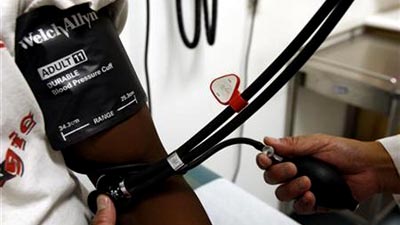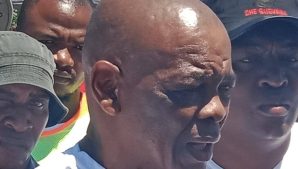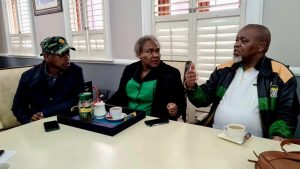The World Health Organisation (WHO) says primary healthcare should include “a whole of society” approach in the delivery of healthcare services globally.
As more than 27 782 million registered voters prepare to head to the polls in the May 29 general election, participatory health governance at the community level reflects the importance of citizen involvement in national and provincial electoral processes and service delivery.
As a result, ensuring that community members have a seat at the decision-making table about the structural and systematic outputs of the clinic is a democratic right of a patient and community resident — just as it is a democratic right of those who will be exercising their democratic rights by voting in the country’s election on 29 May.
Post 1994, South Africa’s health service delivery has sought to emphasise community participation alongside health promotion and multidisciplinary and multi-sectoral integration. However, the socio-economic inequalities rooted in the country’s history reflect some of the persistent challenges to achieving equitable quality healthcare across the country.
Director of the Rural Health Advocacy Project (RHAP), Russell Rensburg said, “South Africa is a country that came out of at least 100 years of apartheid and 300 years of racial exclusion. So, what that means is that there’s probably a bigger demand for healthcare amongst poor people. And the biggest goal of any structure like a clinic which is maybe to encourage more people to access healthcare services.”
It is imperative to be cognisant of the social determinants of health and the key factors attributable to the growing population size in need of accessing health services juxtaposed with shrinking resources and a strained national fiscus.
Bridging the health literacy gap through health promotion and improving population health outcomes requires a community-centred approach at the primary healthcare level. With closer proximity to community members and residents in this context, Clinics and Community Health Centres are local healthcare facilities that play a critical role in sexual and reproductive health services, testing and screening, treatment initiation and retention, TB, HIV, maternal and child health services as well as services for chronic non-communicable ailments such as diabetes and hypertension to name a few. These are among the significant reasons Clinics and Community Health Centers serve as a vital artery in the healthcare system.
The country’s constitution and legislative framework make provision for the participation of community members and residents in the governance of primary healthcare facilities. Similarly, the constitution allows citizens to participate in the electoral processes of the country.
According to Section 42 of the National Health Act 61 of 2003, Clinic and Community Health Centre Committees should be established and obligated to include members of the community. At the facility level, these committees are there to support the clinic in meeting its mandate and bridging the gap between the clinic and the community it serves.
The Chairperson of the Health Committee for the 24-hour-run Guguletu Community Health Clinic Nozibele Mdayi popularly known as Nowhi shared her experience of more than 20 years in various roles in health facilities as a health committee and community member.
Nowhi emphasised that the inclusion and participation of community residents in health committees is significant in the realisation of human rights in health.
“You’ll find that sometimes our people just leave community health centres and clinics without getting the service they are supposed to get, not knowing where to go, not knowing whom do they approach when they have problems’” she explained.
Nowhi added that “To have health committees in the clinic is very important because we are sent by the community. We represent the community, and that is why it’s important in each clinic the health committee names must be on the wall so that when the community has any challenges in terms of services in the institution they can contact the health committee.”
A few key human rights within the health system contained in the National Health Act linked to participatory governance in healthcare:
Barriers and limitations of participatory governance in primary healthcare
Although the National Health Act stipulates the significance of community residents to form part of Clinic and Community Health Centre Committees as a legislative requirement; the roles, limitations, extent of authority and barriers to exercising any powers these committee members have are vague — at best. What is clear is that the National Health Act allows provincial legislatures to identify and establish the roles, responsibilities and powers.
A 2019 review and guide of the National Health Act by Section 27, a human rights and social justice advocacy group, cautions that the absence of clearly outlined policies and guidelines to be adopted nationally on the precise roles and authority of Clinic and Community Health Centre Committees is a slippery slope.
Red flags associated with the risks that health committees may be exposed to:
| o Political interference |
| o Compromised and poor processes for the election of committees |
| o Poor knowledge of roles between clinic management and committee members |
| o Lack of funding |
Nowhi, Chairperson of the Health Committee at Guguletu Community Health Clinic concurs with some of these key issues flagged in the review of the Act regarding the major challenges facing Clinic and Community Health Centre Committees.
“You’ll see that things are just going above the health committee. The health committee is not informed. When I’m talking about informed – even the issues of budget and budget cuts in all provinces. Those things are supposed to come to the governing structure so that when there are challenges, we explain to the community because these budget cuts affect more of the services that must be rendered to its community,” said Nowhi.
“We fought many many times about recognition of health committees. They would tell us we are the governing body, the governing structure of the institution but you’ll find out that with many things health committees, we are sidelined,” she added.
Could the 7th Administration bring tangible change?
As people prepare to go to the polls and vote, they are in part, also voting for better healthcare services. Therefore, addressing the existing barriers and gaps in the healthcare system at the granular level by empowering Clinic and Community Health Centre Committees could see community residents play a more informed and participatory role in their local clinics at facility-level, meaningfully.
While Nowhi’s term as a member of the Health Committee ends in June 2024, this is also likely to mark the beginning of the 7th government in South Africa following the elections on 29 May.
The start of this period for the country could serve as an opportunity for the 7th Administration to tackle these existing gaps embedded in the health system — in a quest to strengthen participatory governance for community residents in South Africa’s health service delivery.
Speaking on the changes that ought to be considered by the incoming political leadership post-elections, Russell Rensburg Director of the Rural Health Advocacy Project (RHAP) explains that health governance in South Africa is in dire need of refining from a policy and legislative perspective going forward.
“Where we have to start and prioritise is the establishment of District Health Councils to oversee district health which includes community health centres and district hospitals and how they get structured and how they can contribute is really where the rubber hits the road and how we can give life to the intent of our Act [ Health Act] and our constitution for more participatory governance,” said Rensburg.
I think that’s the work of politicians. Their job is not to run the health system. Their job is to ensure that the framework that is there is sufficient and that they should then pressure the state to implement the provisions of the Act and hold them accountable when they don’t, and we don’t do enough of that at the moment” he added.
“We have to really look into the terms of reference of Clinic Committees and their composition to make sure they happen effectively. We should look into empowering the entire participatory system,” concluded Rensburg.
Ahead of the elections, some political parties have included plans in their manifesto to improve primary healthcare.
· The Democratic Alliance (DA) commits to universal access to healthcare for all citizens, its goal will entail making the current district management model feasible through governance reform.
· The African National Congress (ANC) says it will expand the Ideal Clinic programme to improve quality of care
· The Economic Freedom Fighters (EFF) has committed to build a clinic for each ward in all wards across the country. Furthermore, one polyclinic per village will be included in wards that have more than one village by 2028.
Data provided by the National Department of Health (NDoH) reveals that the department constructed over 80 clinics and 23 Community Health Centres between 2004 and 2019 across the country, to expand access to basic healthcare services. Scaling-up health infrastructure coupled with more synergy between policy and the implementation of health service delivery is an important aspect to remain cognisant of as millions of people prepare to mark their “X” on the ballots next month.
Therefore, more uniformity within the health sector and the sharing of evidence-driven data for the design and decision-making processes in health service delivery may prove worthwhile for ushering the country’s health system reform plans of attaining the United Nations Sustainable Goal (UNSDG) of Universal Health Coverage (UHC) — all while ensuring that participatory governance in healthcare is realised as a democratic right.
Zandile Myeza is a Specialist Researcher with the SABC News & Current Affairs division






